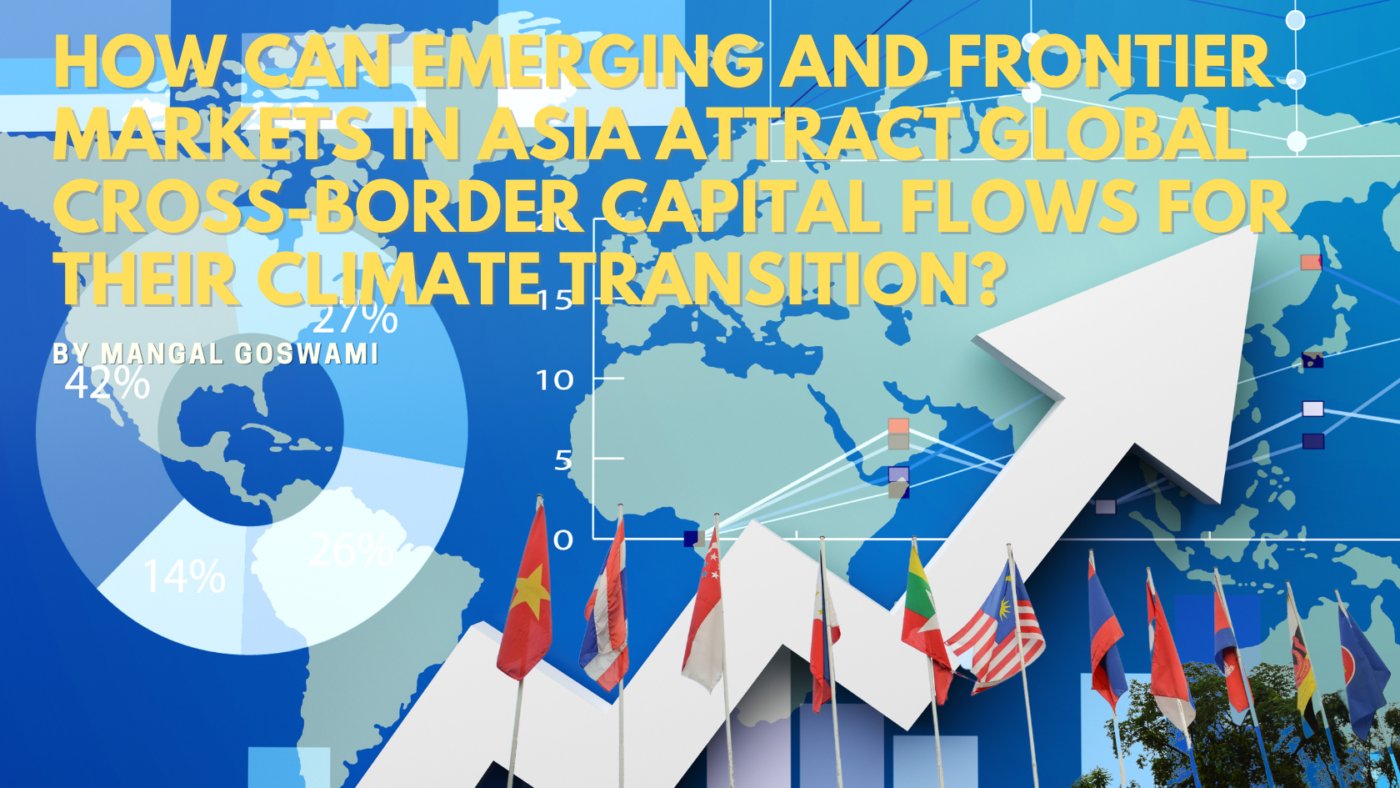As emphasised in opening remarks by Deputy Governor Jessica Chew at the Central Bank Payments Conference on 11 June 2024 in Kuala Lumpur, “The payment system lies at the heart of economic activity. If money is the lifeblood of the economy, then payment systems represent the veins that allow money to flow to where it […]
Category Archives: Financial Stability
“To reach net-zero greenhouse gas (GHG) emissions by 2050, entities operating in most sectors must undergo a major transformation. The key tool that will enable this transformation is the development of a transition plan that is science based, coherent, comprehensive, transparent and covers all material scopes of emissions and business activities.” CBI Report on Scaling […]
Introduction There is a fair degree of consensus that in order to prevent the worst climate damages, global net emissions of carbon dioxide need to fall by about 45 per cent from 2010 levels by 2030, reaching net zero around 2050. To curb the adverse effects of global warming, the Intergovernmental Panel on Climate Change […]
The Basel Committee on Banking Supervision (BCBS or the Basel Committee) has undertaken a lot of work on climate-related financial risks. This blog covers three themes from BCBS’ work on this topic: The focus on climate-related financial risks (and not the broader environment-, nature-, or ESG-related financial risks). Addressing climate-related financial risks within the […]
Background: Additional Tier 1 (AT1) Capital Instruments under Basel III During the global financial crisis (2007-2009), several banks had to be rescued through capital injections by their governments which led to supporting not only the depositors but also the investors in Additional Tier 1 (AT1) and Tier 2 regulatory capital instruments. Inadequate loss-absorption by regulatory […]
The purpose of this blog is to share how fast payments in Asia can be used fraudulently and to illustrate some of counter measures that are being implemented to combat frauds and scams. Across Asia and all around the world, scams and cybercrimes have been on the rise, particularly since the global COVID-19 pandemic. This […]
Due to the expanding utilisation of technology, the digital economy’s growth, and the enlarging fragmentation in the payment chain, safeguarding personal information has become a significant concern for both individuals, organisations and governments. Not only is it crucial to safeguard the privacy rights of individuals, but it also has significant implications for businesses, as data […]
The rise of internet and mobile payments has drastically altered the way people pay for goods and services. This change is not only reflected in an increase in their share of overall payments, but also in the way our habits and preferences have evolved. Banks, payment card companies and intermediaries have responded to these changes […]
Stablecoins are a type of digital asset that purports to maintain a stable value by referencing physical, financial or virtual assets (FSB (2020)). They can be further differentiated into currency-based, financial instrument-based, commodity-based and crypto asset-based stablecoins. There are also algorithmic stablecoins that aim to maintain a stable value via protocols that provide for the […]
Despite the relatively widespread adoption of mobile and internet technology in the Caribbean, retail payments[i] are characterised by “high costs and insufficient access for large swathes of the region’s population (BIS (2020)).” The lack of access to a regular bank account or to other services of financial institutions through mobile devices adversely impacts people from […]










